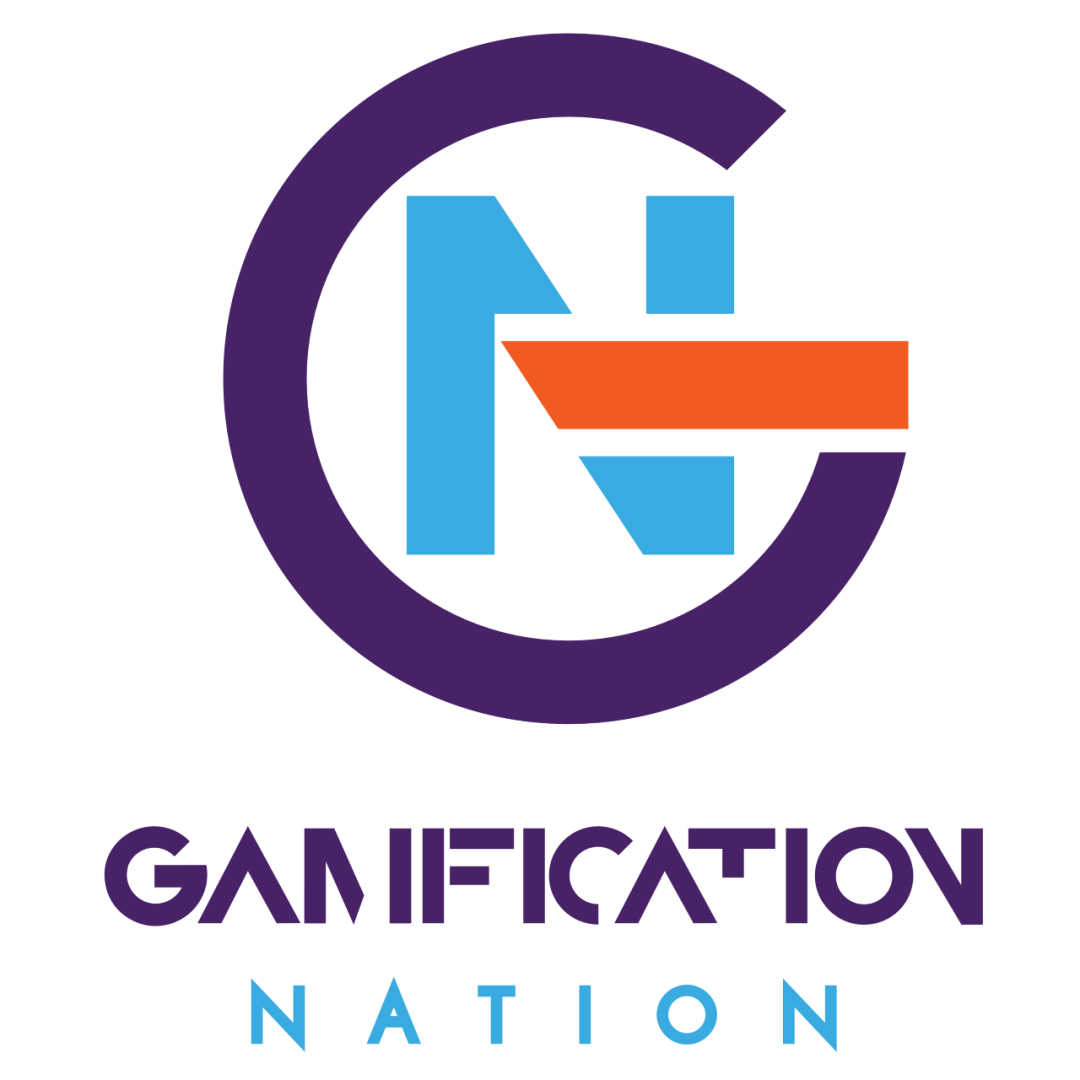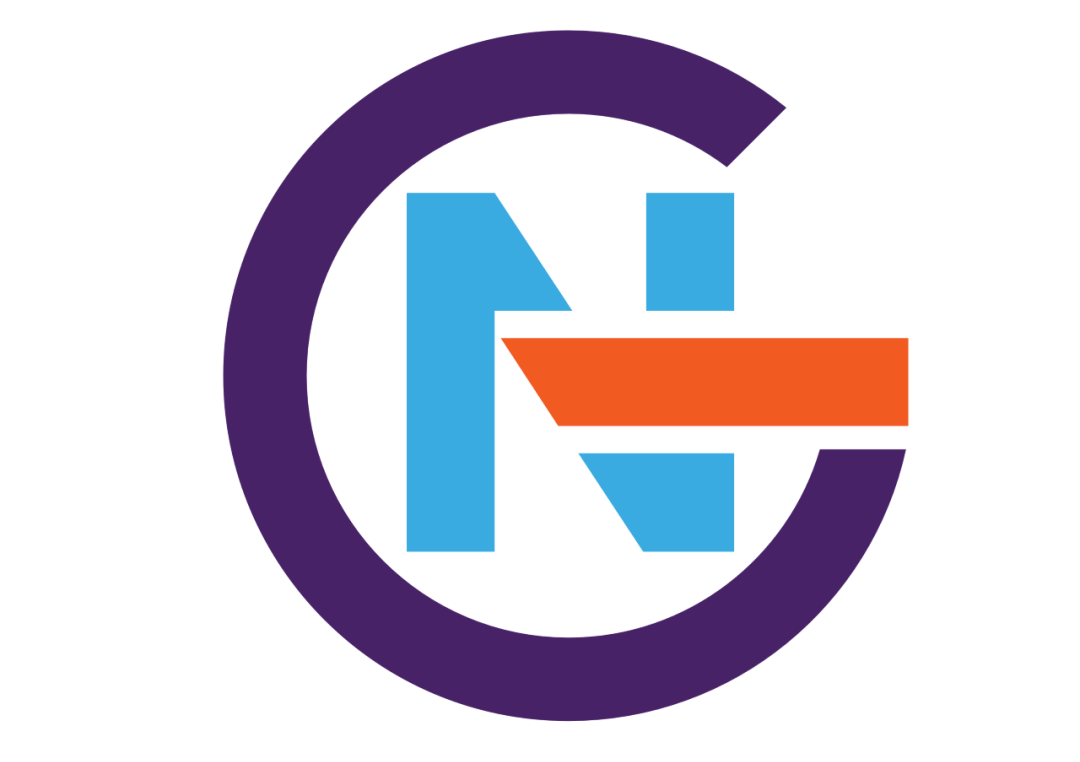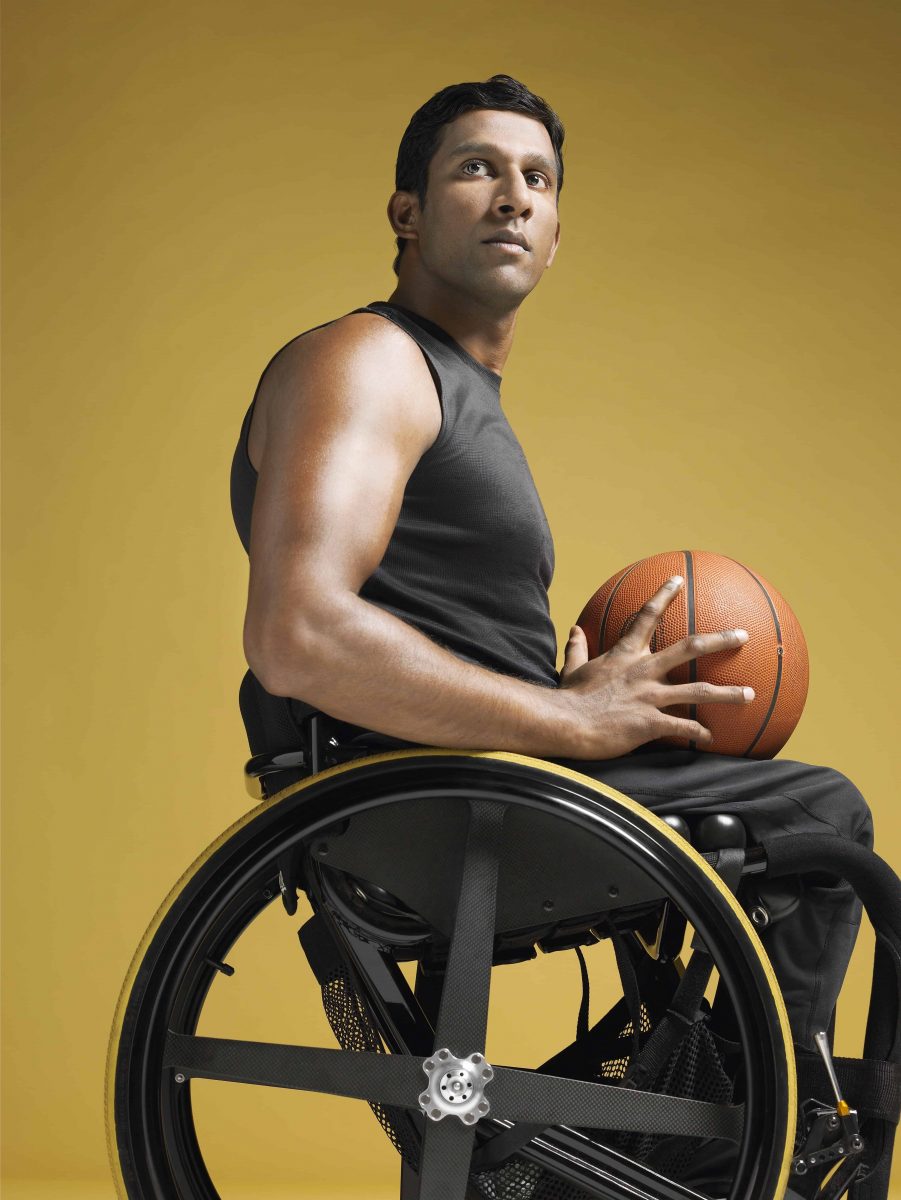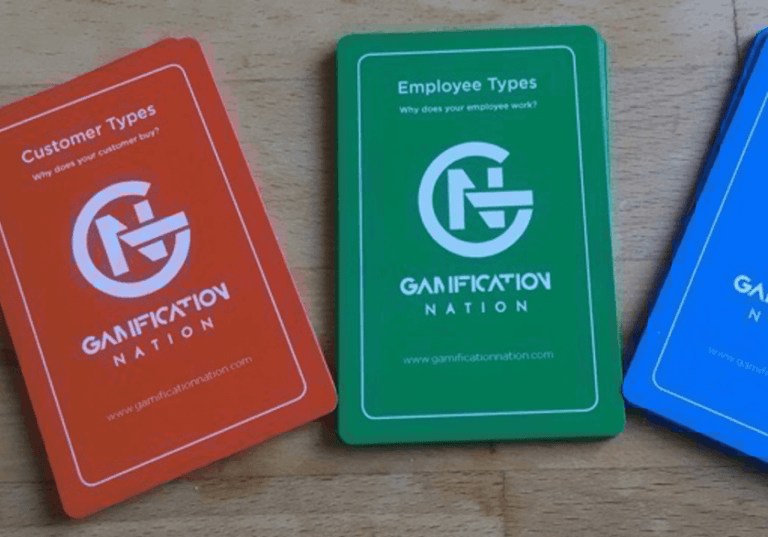How able are you? Able can refer to your level of intelligence, physical ability, ability to adapt and learn, ability to comprehend, etc. So to design for inclusion by ability has to be defined what it means in any given context. We also want to set expectations around the levels of inclusion. We do aim for 100%, which is the target goal eventually, but it may take a few intermittent steps and several iterations to get there.
Imagine you are designing a board game for maximum inclusion by ability. In the first instance, it needs to be fit for purpose. Then the first ability considerations are around who will be playing it, what can they understand easily and the timeframe they will have available to learn and play it. Readability, ease of instructions and wording to an age level is something to be mindful of.
When we work on e-learning projects, we often look for the average education of the target audience and what language level they would understand. These instructions are then part of the brief for learning designers. If at that point we also learn about other ability challenges, we will decide how we cater to them throughout the project and it certainly becomes a decision item in design sprints.
Back to our board game, beyond language comprehension and wording, the next thing that matters is colours and contrasts to be inclusive of those with visual impairments. The physical sturdiness and size of pieces matters for those with physical challenges and to pick pieces up in general.
The British Standards Insitute describes inclusive design with the image below, where with having considerations for several ability levels, products could aim to extend their level of inclusion without adaptations. It also leaves room for specialist products for specific segments of the market.
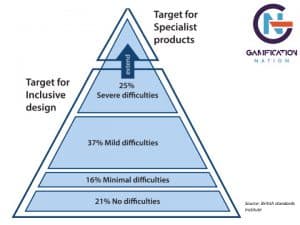
When I first started looking into inclusion by design, ability was one factor of a few I considered important. I had already created several projects where more than one customer journey, learner journey and employee journey had been part of the mix. So extending the percentage of people you can reach with gamification in my book is about tailoring journeys to include as many people as possible.
Most people that have a challenge in ability, will let you know ahead of time. When I have people in a wheelchair or with visual impairments or guide dogs coming along, they usually make me aware ahead of time. It then doesn’t take so much to make sure that what you do in a workshop is inclusive and accessible. When they don’t let you know it is not always easy to cater to their needs.
Charities such as Special Effect in the UK, have been adapting game consoles so that even the most limited in physical ability can still enjoy playing. They are currently looking for testers of their Eye Gaze Games, where you play with just using eye movement alone. I have played a few of their adapted games at events and I have to say from a design perspective it is a rewarding challenge to tackle.
In game design and gamification, using sprints and iterations allow you to design with multiple levels of abilities in mind. When it comes to ability in playing the game or using your gamified solution, making adaptivity an option is always beneficial, so that everyone can move forward, but some may get it the first time and others may need a few boosters before they can level up.
Next time, you have a group with mixed abilities, make adapting fun for designers as well as participants. For me catering for as much inclusion as possible is as much part of the design challenge and fun of the work in design, as it is seeing the appreciation and sense of achievement from players when they get involved.
[wl_faceted_search]
[wl_navigator]
